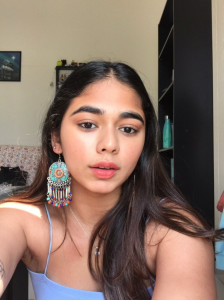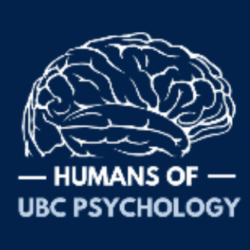
TW: Dissociation, Existentialism
“I disassociated for the first time in my life when I was 14 or 15. I had my parents hold me and I kept asking myself, ‘Am I here? Is this real?’ At that point, I didn’t know what was real. That was the first time that I teased the idea of what consciousness meant.
As a double major in English Literature and Psychology, I write a lot myself as well. I am always questioning this human condition. The best way that I can describe it is if I’m sitting in a car, I am not moving. The car is moving but the road is not moving. While the earth is moving, we’re not experiencing that movement. That contradiction can be such a huge sensory overload for some people especially when we don’t know what it all means.
Over the summer, I read this book called Anxiety for Beginners. The author talks about how humans are predisposed to anxiety with factors like fight-or-flight response and social issues. Then she explained how humans are so intellectually advanced that we cannot even comprehend what our true purpose is. That’s what anxiety can do to you. It makes you question why am I here. If we are here, then is there really any purpose or are we living a hedonistic lifestyle? In a way, I hope to find answers to these questions through Psychology.
Once I started studying from a scientific point of view, through evolutionary psychology or the psychology of sexuality, that probed me. Psychology at a grassroots level pushed me to explore other disciplines.
When I completed Philosophy courses, I came across Nietzche and Camus. Their philosophies in life showed that there are two paths. People will either become existentialists and realize that life is meaningless which is the Nietzchean path. Camus’s path is when you realize that there is nothing here but I might as well enjoy it while I’m here. I feel like I’m in the middle of those two paths and hopefully, Psychology will help me figure my way out. But for now, I’m just zooming through the cosmos!
